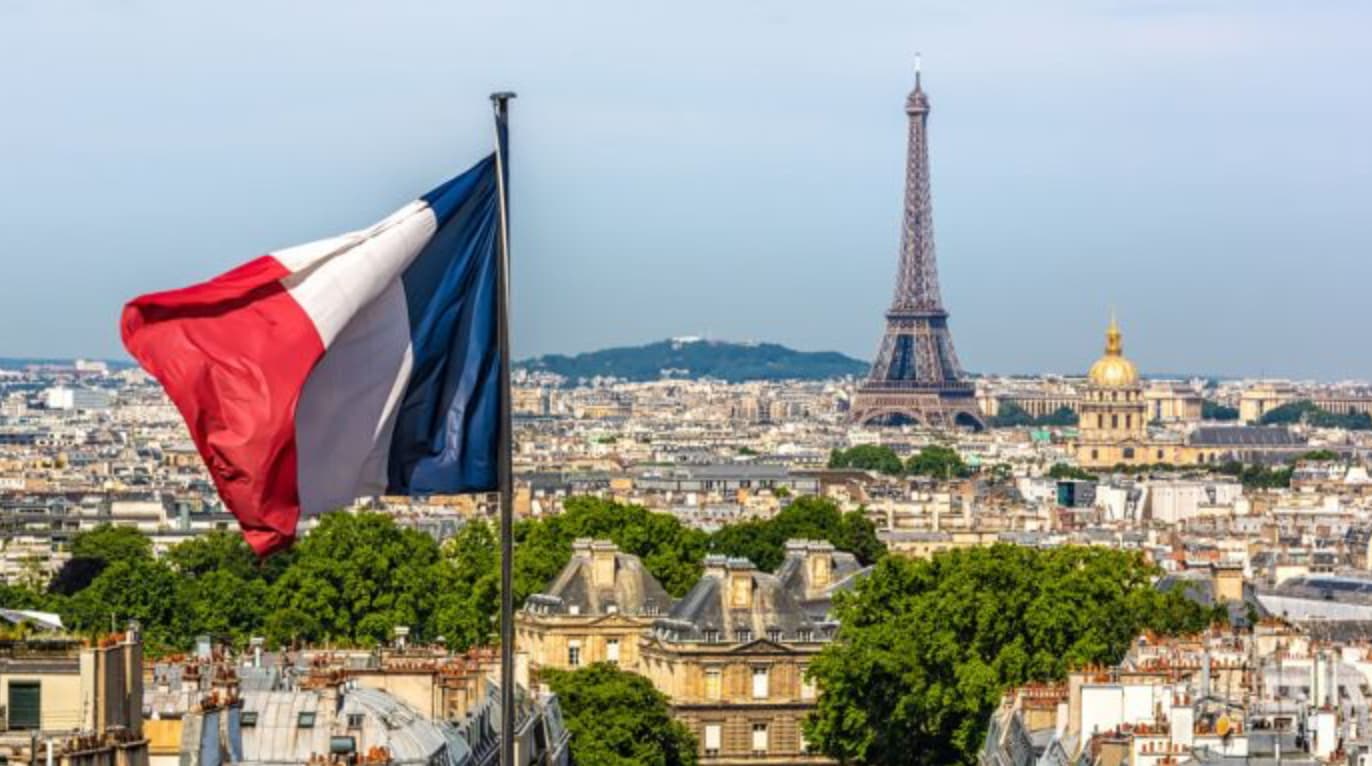The Intersection of Tourism and Academia: Unveiling France’s Educational Landscape

Welcome to the intersection of wanderlust and wisdom, where the cobblestone streets of France pave the way for both adventure and academic enlightenment. Many students often seek outside assistance when it comes to academic endeavors, turning to such leaders of the market as https://memoredaction.com/memoire/. However, we aim to provide assistance differently. Embarking on a journey through France’s educational landscape will unveil a world of opportunities for travelers seeking intellectual nourishment alongside cultural exploration. Join us to unlock the hidden treasures of French academia, where every landmark visited becomes a gateway to knowledge, and every experience promises to inspire scholarly pursuits.
Exploring France’s Academic Institutions
France stands as a beacon of intellectual excellence, boasting a rich tapestry of academic institutions renowned worldwide for their innovation and tradition. From the storied halls of the Sorbonne to the cutting-edge research facilities of Lyon, the country offers a diverse array of educational opportunities to suit every scholarly pursuit.
At the heart of France’s academic landscape lie its prestigious universities, where centuries of academic tradition merge seamlessly with modern innovation. The University of Paris, often referred to as the Sorbonne, stands as a symbol of intellectual prowess, attracting students from around the globe to its hallowed halls. Here, disciplines ranging from the arts and humanities to the sciences and engineering find fertile ground for exploration and discovery.
Beyond Paris, France’s provincial cities play host to a wealth of esteemed institutions, each contributing its own unique flavor to the country’s educational tapestry. Lyon, renowned for its culinary excellence, is also home to world-class research universities such as the University of Lyon, where students engage in groundbreaking research across disciplines.
In addition to its universities, France boasts a vibrant network of grandes écoles, specialized institutions offering rigorous training in fields such as engineering, business, and public administration. From the École Polytechnique to HEC Paris, these elite schools cultivate the next generation of leaders and innovators, shaping the future of their respective industries.
For those drawn to the arts and humanities, France’s conservatoires and academies offer unparalleled opportunities for artistic expression and exploration. Institutions like the Conservatoire de Paris nurture the talents of aspiring musicians, dancers, and actors, while the École des Beaux-Arts provides a forum for aspiring artists to hone their craft.
Whether pursuing a degree in the sciences, humanities, or arts, students in France benefit from a supportive academic environment characterized by small class sizes, engaged faculty, and a strong emphasis on critical thinking and inquiry. With a rich history of academic excellence and a commitment to innovation, France’s academic institutions continue to inspire and shape the minds of tomorrow’s leaders.
Touristic Attractions with Academic Value

In France, the line between tourist attraction and academic treasure often blurs, as many iconic landmarks offer not only aesthetic beauty but also profound educational insights. From the majestic halls of the Louvre to the windswept beaches of Normandy, these attractions provide a window into both France’s rich history and its vibrant intellectual culture.
The Louvre, often hailed as the world’s greatest art museum, is a prime example of a tourist destination with significant academic value. Housing over 35,000 works of art spanning millennia, the museum offers a comprehensive survey of human creativity and expression. Beyond its aesthetic appeal, the Louvre serves as a veritable classroom for art history enthusiasts, offering opportunities for in-depth study and analysis of masterpieces from around the globe.
For those interested in history and politics, the Palace of Versailles stands as a living testament to France’s storied past. Once the seat of absolute monarchy, Versailles offers visitors a glimpse into the opulent world of Louis XIV and the French court. But beyond its gilded halls and manicured gardens, Versailles serves as a poignant reminder of the complex political and social forces that shaped modern Europe. Scholars and historians alike flock to Versailles to study its archives and delve into the intricacies of court life and diplomacy during the ancien régime.
Moving beyond the confines of Paris, the beaches of Normandy offer a sobering reminder of the sacrifices made during World War II. Sites such as Omaha Beach and the Normandy American Cemetery attract visitors from around the world seeking to pay homage to the soldiers who fought and died on D-Day. But beyond their historical significance, these sites offer valuable lessons in geopolitics, military strategy, and the human cost of war. Students and scholars studying history, international relations, and conflict resolution often visit Normandy to gain firsthand insights into one of the defining moments of the 20th century.
Whether exploring the galleries of the Louvre, wandering the halls of Versailles, or reflecting on the beaches of Normandy, visitors to France are sure to find tourist attractions brimming with academic value. By embracing the intersection of tourism and academia, travelers can deepen their understanding of France’s rich cultural heritage and contribute to ongoing scholarly discourse in fields ranging from art history to international relations.
Academic Programs Catering to Tourists
France, with its reputation for academic excellence and cultural richness, offers a plethora of academic programs tailored specifically to cater to the interests and schedules of tourists. These programs provide unique opportunities for travelers to immerse themselves in French culture, language, and academia while exploring the country’s iconic landmarks and attractions.
One popular option for tourists seeking to combine travel with learning is the array of language immersion programs offered throughout France. From intensive French language courses in Paris to immersive language exchanges in the charming villages of Provence, these programs provide participants with the opportunity to enhance their language skills while experiencing French culture firsthand. Students engage in daily language classes taught by experienced instructors, complemented by cultural activities such as cooking classes, museum visits, and guided tours.
For those interested in delving deeper into specific academic disciplines, France offers a variety of specialized study abroad programs tailored to suit a range of interests and backgrounds. Universities such as Sciences Po in Paris and the University of Nice Sophia Antipolis on the French Riviera offer short-term courses and summer programs in subjects as diverse as political science, international relations, art history, and environmental studies. These programs typically combine classroom instruction with hands-on learning experiences, such as field trips, research projects, and internships, allowing students to gain valuable insights into their chosen field while exploring the cultural and historical richness of France.
In addition to traditional academic programs, France also offers a range of experiential learning opportunities for tourists interested in gaining practical skills and knowledge in a specific area. For example, culinary schools in cities like Lyon and Bordeaux offer short-term cooking classes and workshops where participants can learn the art of French cuisine from professional chefs. Similarly, art schools and studios throughout France offer workshops in painting, sculpture, and other artistic disciplines, allowing participants to unleash their creativity while exploring the country’s vibrant artistic heritage.
Overall, academic programs catering to tourists provide a unique and enriching way to experience France’s culture, history, and educational offerings. Whether learning a new language, studying a favorite subject, or acquiring practical skills, participants in these programs gain valuable insights and experiences that enhance their travel experience and deepen their appreciation for the beauty and complexity of France.
Conclusion:
As we draw to a close on our exploration of the intersection of tourism and academia in France, it becomes evident that the country’s educational landscape is as diverse and dynamic as the travelers who flock to its shores. From the bustling streets of Paris to the tranquil vineyards of Bordeaux, France offers a wealth of opportunities for intellectual enrichment and cultural immersion.
By unveiling the hidden treasures of French academia, we have discovered how tourist attractions can serve as gateways to knowledge and inspiration. From the halls of renowned universities to the galleries of world-class museums, each landmark visited offers a unique perspective on France’s rich cultural heritage and intellectual tradition.
Through language immersion programs, study abroad opportunities, and hands-on workshops, tourists can engage with France’s academic community in meaningful and transformative ways. Whether learning a new language, delving into a favorite subject, or acquiring practical skills, participants in these programs gain valuable insights and experiences that enhance their travel experience and deepen their understanding of the world.
As we bid adieu to France’s educational landscape, let us carry with us the lessons learned and the memories made. May our journey through the intersection of tourism and academia serve as a reminder of the power of curiosity, the joy of discovery, and the enduring value of lifelong learning.